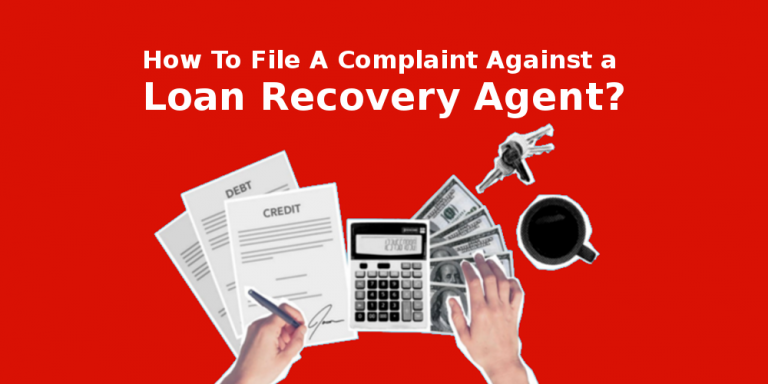In today’s fast-paced financial world, borrowing has become a necessity for many. Whether it’s for buying a home, funding education, or covering medical emergencies, loans play a significant role in bridging financial gaps. However, when borrowers face difficulties in repayment, the situation can quickly spiral into a nightmare, particularly when loan recovery agents resort to harassment. This article delves into the critical issue of loan recovery harassment and explores the legal rights available to borrowers facing such situations.
Understanding the Role of Loan Recovery Agents
Loan recovery agents are individuals or agencies appointed by banks and financial institutions to collect outstanding debts from borrowers. Their primary responsibility is to ensure that loans are repaid according to the agreed-upon terms. However, the methods employed by some agents have raised concerns, as they often cross ethical and legal boundaries in their pursuit of debt recovery. Understanding the role and limitations of these agents is crucial for borrowers to navigate these challenges effectively.
The Impact of Harassment on Borrowers
The harassment faced by borrowers from loan recovery agents can have severe emotional, psychological, and financial consequences. Persistent phone calls, threats, and intimidation tactics can lead to anxiety, stress, and even depression. Moreover, the stigma associated with being pursued by debt collectors can damage a person’s reputation and relationships. It is essential to recognize the impact of such harassment and take proactive steps to protect oneself.
Legal Framework Governing Loan Recovery in India
India has a robust legal framework in place to regulate the activities of loan recovery agents and protect borrowers from harassment. The Reserve Bank of India (RBI) and various consumer protection laws provide guidelines and regulations that financial institutions and their agents must adhere to. Understanding these legal provisions is the first step in defending your rights as a borrower.
Borrowers’ Legal Rights Under the RBI Guidelines
The Reserve Bank of India (RBI) has issued specific guidelines to regulate the conduct of loan recovery agents. These guidelines are designed to protect borrowers from unethical practices and ensure that agents operate within legal boundaries. As a borrower, it is crucial to be aware of these guidelines and how they can be used to safeguard your rights.
Prohibition of Harassment and Coercion by Recovery Agents
The RBI guidelines explicitly prohibit recovery agents from using harassment, coercion, or threats to recover loans. This includes making repeated and unsolicited phone calls, using abusive language, and physically intimidating borrowers. If you experience such behavior, you have the right to report the agent and seek legal recourse.
Right to Privacy: Protecting Your Personal Information
Your right to privacy is paramount, and recovery agents are not allowed to disclose your loan details to unauthorized individuals or entities. Any violation of this right can lead to serious legal consequences for the financial institution and the agent involved. Understanding how to protect your personal information is essential in safeguarding your privacy.
Legal Recourse Against Harassment by Loan Recovery Agents
If you find yourself being harassed by loan recovery agents, you have the right to seek legal recourse. Indian law provides several avenues through which you can address the issue, including filing complaints with the police, approaching consumer courts, and seeking injunctions. Knowing the steps to take and the evidence required will strengthen your case.
Filing a Complaint with the Reserve Bank of India
The Reserve Bank of India allows borrowers to file complaints against financial institutions or their agents if they violate the RBI’s guidelines. This section will guide you through the process of filing a complaint, including the documentation required and the steps involved in escalating the matter if your complaint is not addressed satisfactorily.
Seeking Protection Through Consumer Courts
Consumer courts are another avenue for borrowers to seek redressal against harassment by loan recovery agents. These courts are specifically designed to handle disputes between consumers and service providers, including banks and financial institutions. Understanding how to approach consumer courts and the types of relief available can help you assert your rights effectively.
Understanding the Role of the Police in Loan Recovery Harassment Cases
In cases where harassment escalates to threats of violence or other criminal activities, the police play a crucial role in protecting borrowers. This section will explain when and how to involve the police, the kind of evidence you need to present, and what to expect during the legal process.
Injunctions and Restraining Orders: Legal Tools to Stop Harassment
If the harassment from loan recovery agents becomes unbearable, you may seek an injunction or restraining order from the court. These legal tools can prohibit agents from contacting you or coming near your residence or workplace. Understanding the process of obtaining these orders can provide you with immediate relief from harassment.
The Role of Credit Information Bureaus and Your Credit Score
Loan recovery harassment can also have a significant impact on your credit score, which in turn affects your ability to borrow in the future. This section will discuss the role of credit information bureaus in the recovery process, how harassment can lead to inaccuracies in your credit report, and what steps you can take to correct them.
The Importance of Maintaining Proper Documentation
Proper documentation is key to protecting yourself against harassment by loan recovery agents. Keeping records of all communication, payments, and interactions with agents can serve as crucial evidence if you need to take legal action. This section will provide tips on how to maintain and organize your documentation effectively.
Alternative Dispute Resolution: Mediation and Arbitration
In some cases, alternative dispute resolution methods such as mediation and arbitration can provide a faster and less confrontational way to resolve disputes with loan recovery agents. This section will explore how these methods work, their advantages and disadvantages, and when they might be appropriate for your situation.
Negotiating with Creditors: Restructuring Your Loan
If you are unable to repay your loan due to genuine financial difficulties, negotiating with your creditor to restructure the loan may be a viable option. This section will discuss the process of loan restructuring, including how to approach your creditor, what terms to negotiate, and how to ensure that the new agreement is legally binding.
Understanding the Doctrine of Fair Debt Collection
The doctrine of fair debt collection is a principle that governs how debts should be collected in a manner that is fair and respectful of the borrower’s rights. This section will delve into the legal foundations of this doctrine and how it applies to your interactions with loan recovery agents.
How to Deal with Loan Recovery Agents: Practical Tips
Beyond legal actions, there are practical steps you can take to manage interactions with loan recovery agents. This section will provide tips on how to communicate effectively with agents, set boundaries, and protect yourself from intimidation or coercion.
The Role of Debt Counselors and Legal Advisors
Seeking professional help from debt counselors and legal advisors can provide you with the support and guidance needed to navigate loan recovery harassment. This section will discuss the benefits of consulting with professionals, what to expect from their services, and how to choose the right advisor for your needs.
Case Studies: Legal Precedents in Loan Recovery Harassment
Analyzing legal precedents can provide valuable insights into how the courts have dealt with loan recovery harassment in the past. This section will explore significant case studies, the outcomes of these cases, and what they mean for borrowers today.
The Ethical Dilemma: Balancing Debt Recovery with Borrower Rights
While debt recovery is a legitimate business practice, it must be balanced with the rights and dignity of the borrower. This section will discuss the ethical considerations involved in loan recovery, the responsibilities of financial institutions, and the importance of treating borrowers with fairness and respect.
How Financial Institutions Can Prevent Harassment
Financial institutions have a critical role in preventing harassment by ensuring that their recovery agents adhere to legal and ethical standards. This section will explore best practices for banks and financial institutions, including training programs, monitoring, and accountability measures.
Conclusion: Empowering Borrowers to Stand Up Against Harassment
In conclusion, borrowers facing harassment from loan recovery agents are not powerless. By understanding your legal rights, taking proactive steps, and seeking professional help, when necessary, you can protect yourself and stand up against unethical practices. This article has provided a comprehensive overview of the tools and strategies available to borrowers, empowering you to take control of your financial situation with confidence.
For more information on your legal rights as a borrower and how to handle harassment from loan recovery agents:
1. Reserve Bank of India – Guidelines on Fair Practices Code for Lenders https://www.rbi.org.in/Scripts/NotificationUser.aspx?Id=8628&Mode=0 This page on the RBI’s official website outlines the guidelines and regulations that lenders and their agents must follow to ensure fair practices, including the treatment of borrowers during the loan recovery process.
2. National Consumer Disputes Redressal Commission (NCDRC) – Filing a Complaint https://ncdrc.nic.in/) The NCDRC website provides detailed information on how to file a complaint against harassment by loan recovery agents through the consumer court system, along with other consumer protection resources.
Check out! Tax Refund Triumph:10 Steps to Crack the Code and Get Your ITR Refund Faster – FINANCE WRITES

